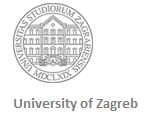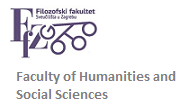Home » books by the staff-description (Page 4)
Category Archives: books by the staff-description
Cognitive Linguistics and language structures: present perfect
Milena Žic Fuchs. Kognitivna lingvistika i jezične strukture: engleski present perfect. Zagreb: Nakladni zavod Globus, 2009.
Siting America/Sighting Modernity
Jelena Šesnić (ed). Siting America/Sighting Modernity: Essays in Honor of Sonja Bašić. Zagreb: FF Press, 2010. The collection of essays by an array of international and Croatian contributors concerns itself with a set of topics such as different theoretical and methodological aspects of American studies, the institutionalization of American studies in Croatia, while, in its […]
From monolingualism to multilingualism: Introduction to Second Language Acquistion research
Marta Medved Krajnović. Od jednojezičnosti do višejezičnosti: Uvod u istraživanje procesa ovladavanja inim jezikom. Zagreb: Leykam International d.o.o., 2010.
Dark Ladies: Figures of Femininity in American Literature (1820-1860)
Jelena Šesnić. Mračne žene. Prikazi ženstva u američkoj književnosti (1820.-1860.) Zagreb: Leykam International, 2010.
Revolution and Melancholia. Limits of Literary Memory
Tatjana Jukić. Revolucija i melankolija. Granice pamćenja hrvatske književnosti. Zagreb: Naklada Ljevak, 2011.
Towering Figures: Reading the 9/11 Archive
Sven Cvek. Towering Figures: Reading the 9/11 Archive. Amsterdam & New York: Rodopi, 2011.The book analyzes US literary representations of the September 11, 2001 terrorist attacks, focusing on the works of Jonathan Safran Foer, Art Spiegelman, Don DeLillo, and Thomas Pynchon. The book is an attempt to articulate the fundamental relation of the 9/11 cultural […]
Cognitive Linguistics: Convergence and Expansion
Mario Brdar, Stefan Gries, Stefan, and Milena Žic Fuchs (eds). Cognitive Linguistics: Convergence and Expansion. Amsterdam, Philadelphia: John Benjamins, 2011. Cognitive Linguistics is not a unified theory of language but rather a set of flexible and mutually compatible theoretical frameworks. Whether these frameworks can or should stabilize into a unified theory is open to debate. […]
Reading Joyce after the Postcolonial Turn
Borislav Knežević. Reading Joyce after the Postcolonial Turn. Zagreb: FF-press, 2012. The book examines the impact of postcolonial theory on interpretations of Joyce’s fiction. It seeks to elucidate critically some of the limitations of historiographic discourse in postcolonial criticism. It also seeks to call attention to some underanalyzed issues in Joyce’s fiction, such as the […]
Cognitive linguistics between universality and variation
Mario Brdar, Ida Raffaelli, and Milena Žic Fuchs (eds). Cognitive Linguistics between Universality and Variation . Cambridge Scholars Publishing, 2012.The present volume contains a collection of contributions originally presented as keynote talks or as regular papers at the International Cognitive Linguistics Conference Cognitive Linguistics between Universality and Variation, held in Dubrovnik (Croatia), 30 September–1 October, […]
Development of Australian Aboriginal Fiction. From an invisible to a postcolonial yarn
Iva Polak. Razvoj književne proze australskih Aboridžina: od nevidljive do postkolonijalne priče (Development of Australian Aboriginal Fiction. From an indivisible to a postcolonial yarn). Biblioteka književna smotra, ed. Irena Lukšić, Zagreb: Hrvatsko filološko društvo, 2011. pp. 396. The study discusses the corpus of Australian Aboriginal fiction in English and is meant to familiarize the Croatian […]



